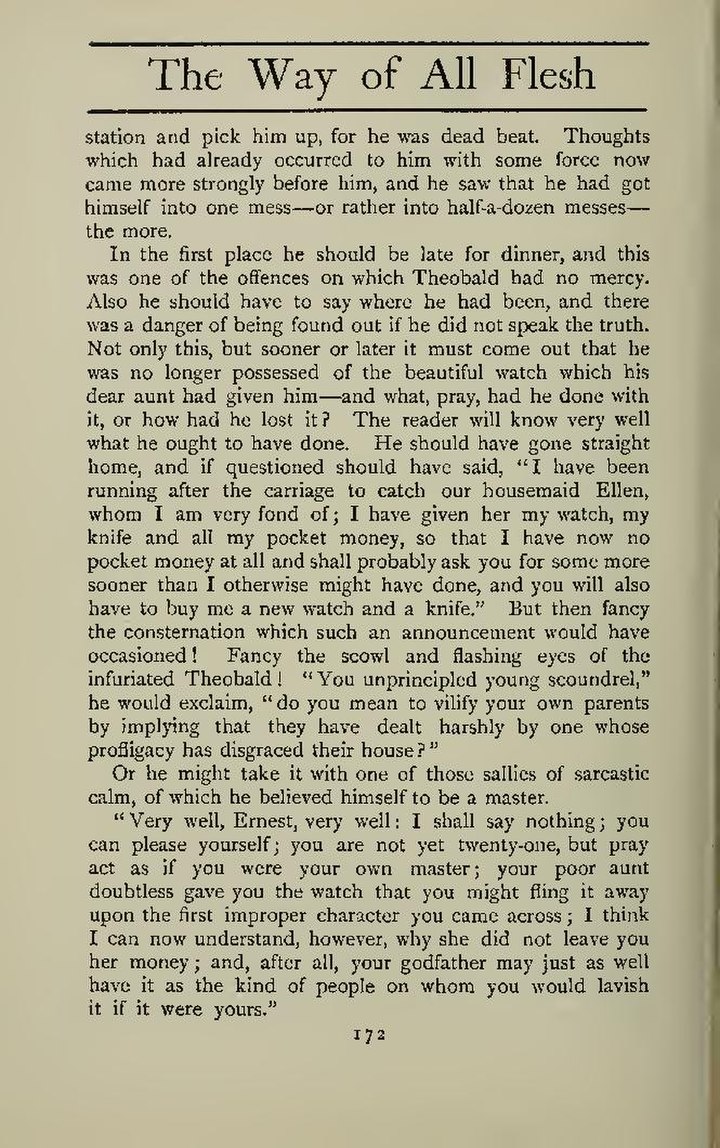The Way of All Flesh
station and pick him up, for he was dead beat. Thoughts which had already occurred to him with some force now came more strongly before him, and he saw that he had got himself into one mess—or rather into half-a-dozen messes—the more.
In the first place he should be late for dinner, and this was one of the offences on which Theobald had no mercy. Also he should have to say where he had been, and there was a danger of being found out if he did not speak the truth. Not only this, but sooner or later it must come out that he was no longer possessed of the beautiful watch which his dear aunt had given him—and what, pray, had he done with it, or how had he lost it? The reader will know very well what he ought to have done. He should have gone straight home, and if questioned should have said, "I have been running after the carriage to catch our housemaid Ellen, whom I am very fond of; I have given her my watch, my knife and all my pocket money, so that I have now no pocket money at all and shall probably ask you for some more sooner than I otherwise might have done, and you will also have to buy me a new watch and a knife." But then fancy the consternation which such an announcement would have occasioned! Fancy the scowl and flashing eyes of the infuriated Theobald! "You unprincipled young scoundrel," he would exclaim, "do you mean to vilify your own parents by implying that they have dealt harshly by one whose profligacy has disgraced their house?"
Or he might take it with one of those sallies of sarcastic calm, of which he believed himself to be a master.
"Very well, Ernest, very well: I shall say nothing; you can please yourself; you are not yet twenty-one, but pray act as if you were your own master; your poor aunt doubtless gave you the watch that you might fling it away upon the first improper character you came across; I think I can now understand, however, why she did not leave you her money; and, after all, your godfather may just as well have it as the kind of people on whom you would lavish it if it were yours."
172
